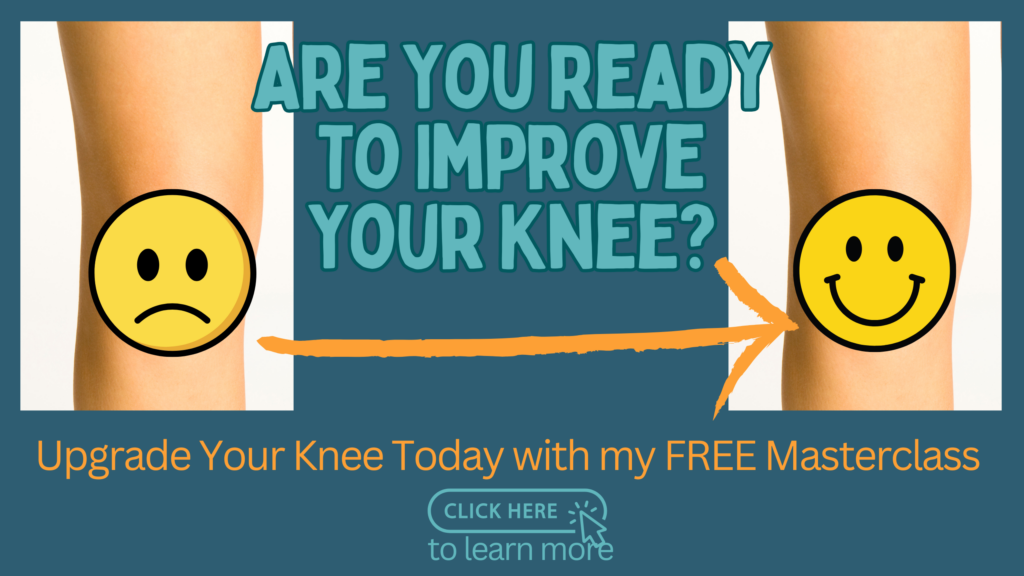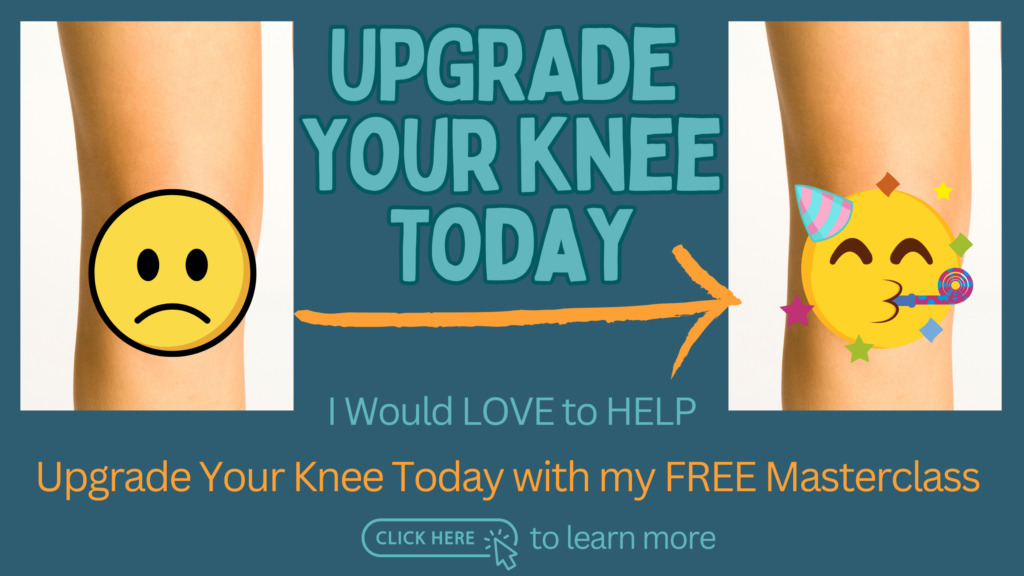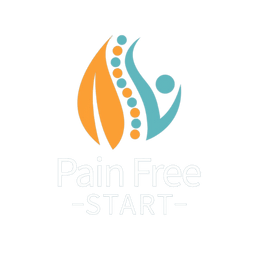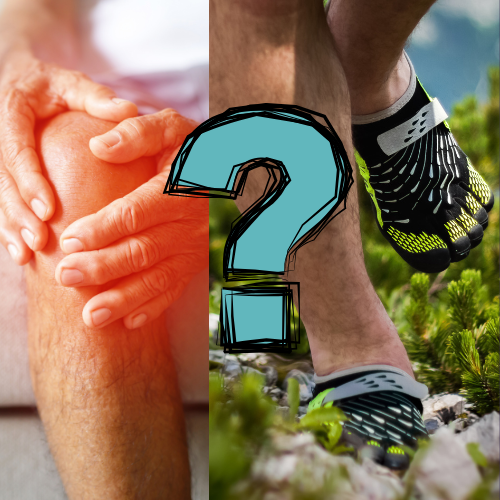As barefoot shoes gain popularity for their promise of natural movement and comfort, many wonder if they might be beneficial for arthritic knees. It’s certainly something that patients ask me about, so I thought we could take a look. If you’ve been curious about whether barefoot shoes could help or potentially worsen knee arthritis, this guide offers expert insights and practical advice to help you make an informed decision.
What Are Barefoot Shoes?
Barefoot shoes are designed to mimic the experience of walking barefoot while still providing protection. They typically feature minimal padding, a flexible sole, a wide toe box for natural toe splay, and little to no heel lift. Proponents claim these shoes can promote natural alignment, strengthen foot muscles, and encourage a healthier walking gait. But how does this impact those with knee arthritis?
Potential Benefits of Barefoot Shoes for Knee Health
For some people with arthritic knees, barefoot shoes may offer surprising benefits:
- Encouraging Natural Alignment and Gait
Barefoot shoes are designed to allow your feet to move naturally. Traditional shoes with thick soles and cushioning can sometimes alter our gait and cause extra pressure on the knees. By promoting a more natural walking style, barefoot shoes can improve knee alignment, which may reduce stress on arthritic joints. - Strengthening Foot Muscles and Improving Stability
Barefoot shoes engage more of the small muscles in your feet, which may help to support better foot and ankle stability. This strengthening effect could benefit knee alignment, as stronger foot and ankle muscles can help improve the mechanics of the whole lower body, potentially reducing the load on your knees. - Potential Reduction in Knee Pain Due to Minimal Heel Lift
Traditional footwear often has a slight heel lift, which can place more strain on the knee joint. Barefoot shoes, with their flat sole, allow for a more even distribution of weight, potentially easing knee pain for some.
Potential Downsides of Barefoot Shoes for Arthritic Knees
While barefoot shoes can offer benefits, they also have certain downsides, especially for individuals with advanced knee arthritis or those with significant joint pain:
- Minimal Cushioning and Shock Absorption
Barefoot shoes have little to no cushioning, which may increase the impact on your knee joints, especially on hard surfaces. For individuals with knee arthritis, this lack of shock absorption could exacerbate pain, particularly during high-impact activities like running or brisk walking. - Lack of Support
Most people I see in clinic benefit greatly from footwear that actively supports their foot placing it in the correct alignment. Very few people with arthritic knees have feet that are well aligned and look to footwear or innersoles to gain this. By ensuring your foot is well aligned the vast majority offload their knee reducing the strain and in turn their pain. The lack of support in barefoot shoes may not provide the stability needed by the majority of people with arthritic knees potentially worsening knee discomfort or pain. - Unsuitability for High-Impact Activities
Although barefoot shoes encourage natural alignment, they may not be ideal for activities involving repetitive impact, like running or hiking on uneven terrain. The lack of support in barefoot shoes may not provide the stability needed for these activities and could worsen knee discomfort or pain over time. - Adjustment Period and Risk of Overuse
Transitioning to barefoot shoes often requires time to adjust. Going barefoot-style too quickly or for too long can lead to overuse of muscles that aren’t accustomed to working as hard, potentially leading to foot, ankle, or knee pain. This may particularly impact those with existing knee arthritis.

** UPGRADE your knee in my FREE Masterclass. Click to learn more.
Tips for Trying Barefoot Shoes with Arthritic Knees
If you’re interested in trying barefoot shoes but are concerned about how they’ll impact your knees, here are some tips to ease the transition:
- Get Your Knees In the Best Shape Possible
The stronger and optimally aligned your knees are the better they will function. If you are keen to get the most from your knees then my Online Arthritic Knee Program combines a staged exercise program, a biomechanical assessment and all the tips and tricks I have learnt over the years so you can Upgrade your knees. - Start with Barefoot Shoes that Offer Some Cushioning
While true barefoot shoes have minimal padding, some brands now offer a bit more support while still maintaining a minimalist design. Shoes that offer slight cushioning can provide the benefits of barefoot movement while reducing impact on the knees. - Transition Gradually
Start with short walks and gradually increase your time wearing barefoot shoes. This allows your muscles and joints to adapt slowly, reducing the risk of discomfort or overuse. Listening to your body during this transition is key, especially if you start to notice increased pain in your knees. - Consider Hybrid Barefoot Shoes as an Alternative
If you find the transition to barefoot shoes challenging, consider hybrid styles that combine barefoot features with a bit more structure and cushioning. This type of footwear may offer a middle ground, allowing you to enjoy the benefits of barefoot shoes without compromising knee support. - Incorporate Low-Impact Activities
Barefoot shoes may be best suited for low-impact activities like casual walking or gentle indoor exercises, especially for individuals with knee arthritis. Avoid using barefoot shoes for high-impact sports or long-distance walking on hard surfaces, as these activities may increase knee strain. - Consult with a Physiotherapist or Podiatrist
If you’re uncertain whether barefoot shoes are right for you, a consultation with a physiotherapist or podiatrist can provide personalised advice. They can assess your knee condition, alignment, and overall health, helping you choose footwear that supports your unique needs.
Best Barefoot Shoes On The Market
If you decide to give them a go here are some good options to try;
The Best Barefoot Shoes: Top Picks for Natural Foot Health
Alternatives That May Be Better
I have 3 other related blogs you may find useful.
Comparing Top Footwear for Arthritic Knees: A Comprehensive Guide
The Best Sandals for Arthritic Knees: Supportive Styles for Summer
The Best Barefoot Shoes: Top Picks for Natural Foot Health
Conclusion: Are Barefoot Shoes Right for You?
Barefoot shoes for some can promote natural alignment, strengthen foot muscles, and potentially reduce knee pain. However, they may not be suitable for everyone, especially those with moderate to severe knee arthritis or individuals who engage in high-impact activities.
If you’re considering barefoot shoes, start with shorter periods of wear, choose shoes with slight cushioning, and consider hybrid styles that offer added support. And always listen to your body—if barefoot shoes cause knee pain or discomfort, it may be best to explore other supportive footwear options.
Ultimately, while barefoot shoes might help some people with knee arthritis, they are far from a guaranteed solution. By approaching them with caution and professional guidance, you can make an informed choice that aligns with your health and comfort. Don’t forget footwear is only part of the answer there are many other things you can do to actively improve your arthritic knee – Find out more in my FREE Arthritic Knee Masterclass. If you need help with this or anything else I would love to help.
Take care, Helen
Helen Manders BSc (Hons) MCSP HCPC
Chartered Physiotherapist Treating Arthritic Knees Since 2001




